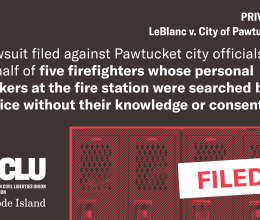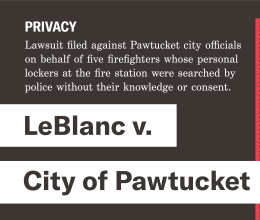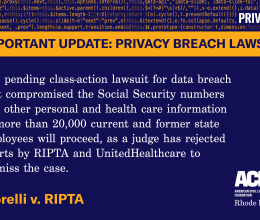ACLU of Rhode Island executive director Steven Brown issued the following statement today in response to the U.S. Supreme Court’s decision this morning in City of Los Angeles v. Patel, ruling unconstitutional a city ordinance that required hotel operators to turn over to police upon request registry information about their guests:
“Earlier this year it was revealed that Motel 6 in Warwick had entered into an agreement with Warwick Police to routinely turn over its daily guest list of patrons. This policy was roundly condemned by the ACLU of Rhode Island and others as a significant intrusion on guests’ privacy. As a result of the outcry, the motel agreed to revise its policy.
“At the same time, it remained unclear exactly how significant that change in policy was. There was some suggestion that the motel, without any formal legal process or cause to believe criminal activity was occurring, would permit Warwick police officers to view the guest list at the motel upon request, while no longer routinely sending it over to the police department. If so, this superficial change in policy has only perpetuated the serious intrusion of privacy that Motel 6 guests are being subjected to.
“Today’s Supreme Court decision makes clear that establishments like Motel 6 have a constitutional right to keep their guest registries confidential in the absence of the use of a formal legal process by police or exigent circumstances. With this constitutional authority now available to establishments to protect the privacy of their guests, the ACLU hopes and expects that Motel 6 and other public accommodations across the state will halt any current practices to the contrary. As we have said before, hotels should be treating their patrons as guests, not as participants in a police line-up."








